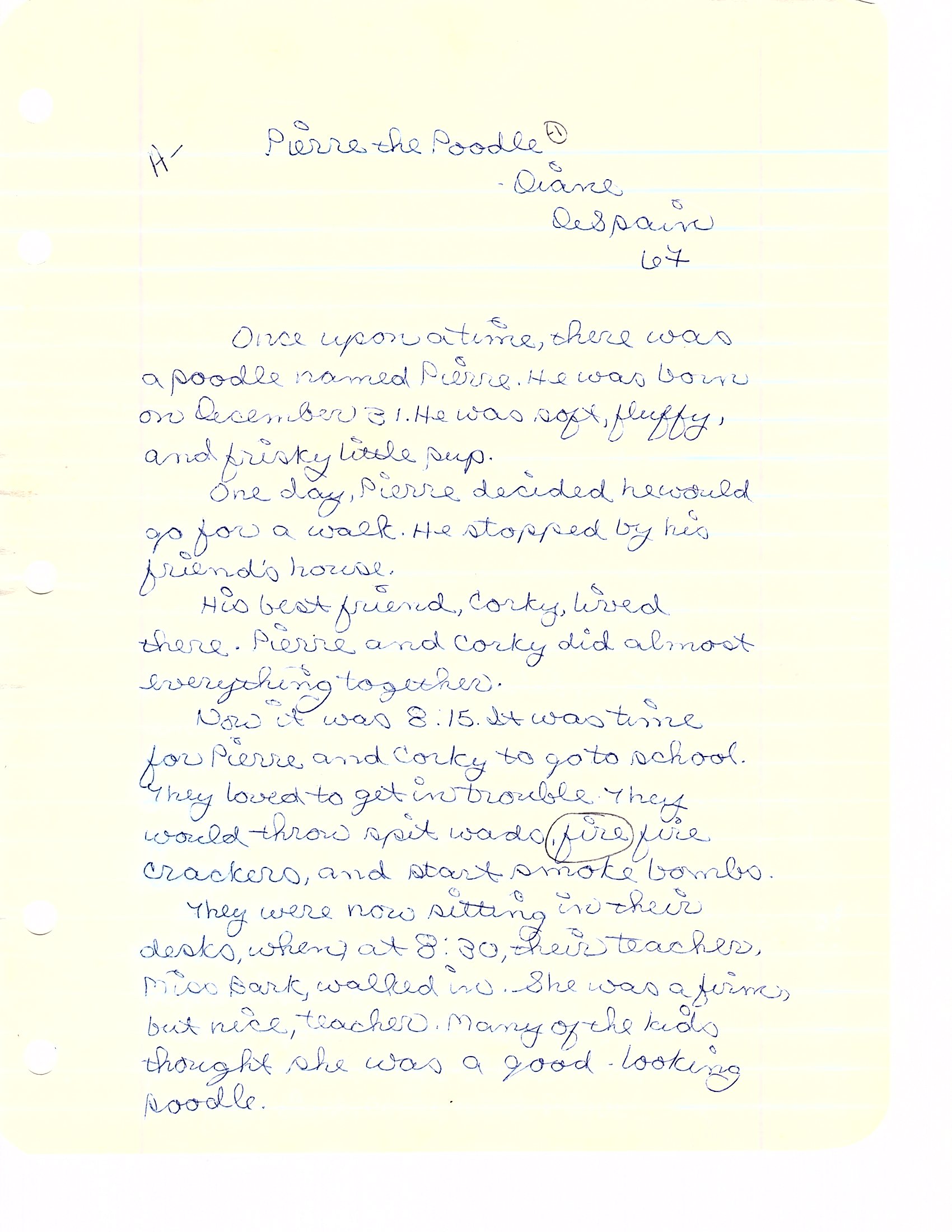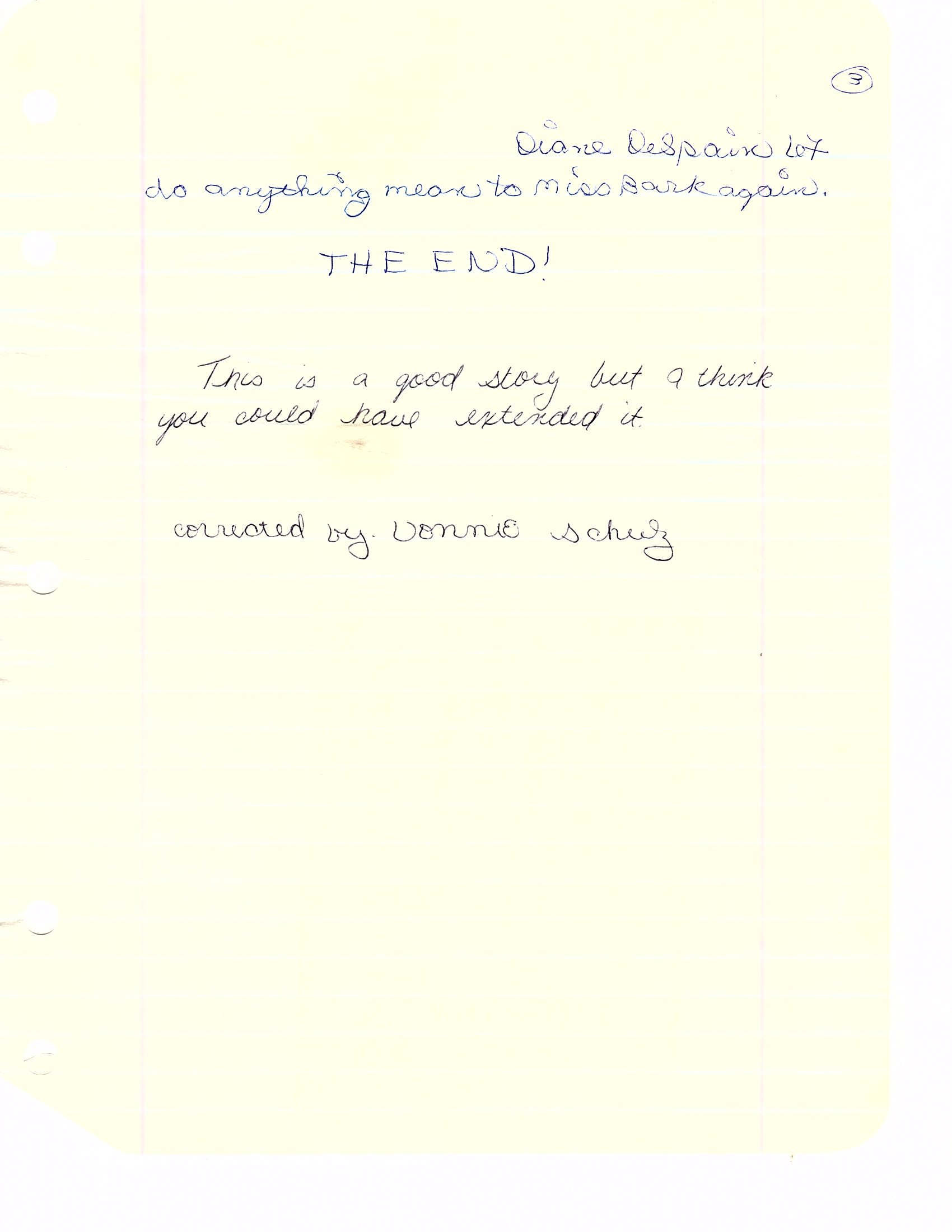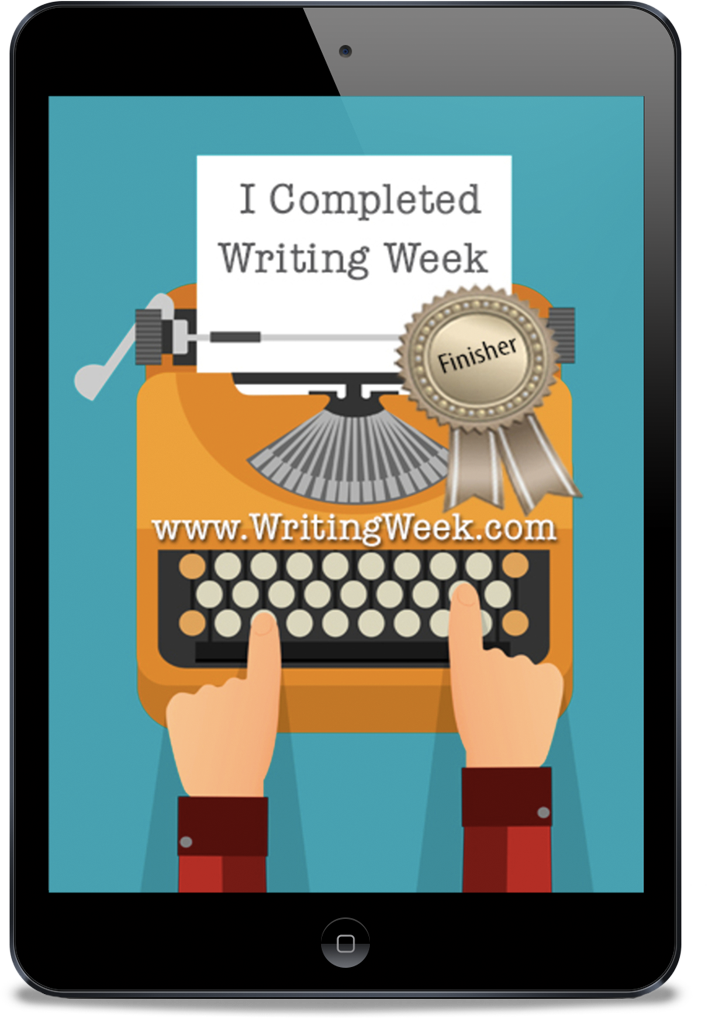Look what my mom found while going through some boxes! She sent this to me with “Is this your first manuscript?” written on a light-pink Post-it note. Just holding these now-yellowed pages in my hands and seeing my loopy, eleven-year-old scrawl brings a smile to my face every time.
I must say, with my editor’s eagle eye I see only a few issues with grammar and punctuation, but several glaring ones with point of view. There’s a lot of head-hopping going on in these three pages. Still, not bad for a first attempt in sixth grade. But what I want to know is, What were those little mischief-makers doing with matches and stink bombs, in school no less, and where did they get them?? Rule #1: Leave NO unanswered questions in the reader’s mind.
I agree with my friend Vonnie’s critique that I could have extended this story. Pierre and Corky were a couple of naughty little pups, so there was plenty of literary fodder with all their shenanigans!
Here’s some backstory about the source of my inspiration. Pierre was my mom’s white toy poodle, who she adored. Correction: worshipped. But not me. Pierre was high-strung, snobbish, cranky, snappy, and spoiled rotten. Mom literally cooked whole chickens and, on special occasions, liver for him alone and dressed him in a black-and-white striped sweater decades before it was fashionable to do so. And at Christmas, she dressed him in a red flannel Santa jacket with a black belt and matching pointy red hat with, get this, a white beard. Ugh. I apparently turned my loathing (and yes, jealousy) into art, giving ol’ Pierre his comeuppance with a wooden paddle to his curly white backside. “The pen is mightier than the sword” (Edward Bulwer-Lytton, English author, 1839). Ah, how true. Oh, how sweet. And I got an A- to boot!
Once a writer, always a writer. When did you pen your first story or manuscript?




